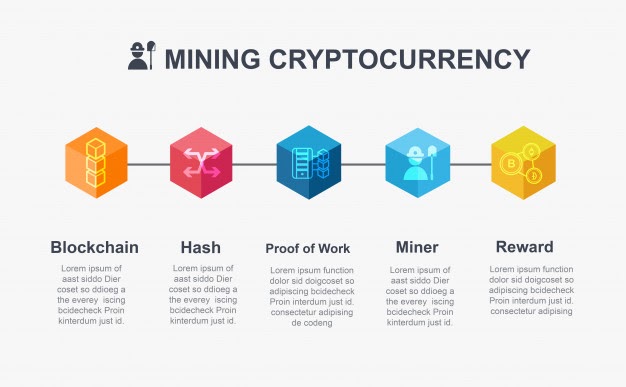AUTHOR : EMILY
DATE : 23/08/2024
Introduction
Cryptocurrency mining has emerged as a significant aspect of the global digital economy, enabling the creation and verification of digital assets[1] like Bitcoin, Ethereum, and other cryptocurrencies. While the concept of mining started as a niche activity, it has grown into a multibillion-dollar industry worldwide. India, with its vast technological expertise and growing interest in blockchain[2] technology, is beginning to see advancements in cryptocurrency[3] mining. However, this growth is tempered by regulatory uncertainties, energy concerns, and the need for technological infrastructure.
Understanding Cryptocurrency Mining
Cryptocurrency mining is the process of validating transactions on a blockchain network[4] by solving complex mathematical problems. Miners use powerful computers to compete in solving these problems, and the first to do so successfully is rewarded with newly minted cryptocurrency.
When Bitcoin[5] first started, mining was possible with an ordinary computer. However, as more people started mining and the complexity of the problems increased, specialized hardware known as Application-Specific Integrated Circuits (ASICs) became necessary. Today, large-scale mining operations require significant investments in hardware, electricity, and cooling systems, making it a capital-intensive industry.

The Growth of Cryptocurrency Mining in India
India has seen a slow but steady rise in cryptocurrency mining activities. Several factors contribute to this growth, Although India is not yet a major player in the global mining industry, several developments indicate that the country could become more involved in the future.
1. Increased Interest and Awareness
As cryptocurrencies gain popularity among Indian investors, there is a growing interest[1] in understanding the mining process. This interest is not limited to individual hobbyists but has also attracted small and medium enterprises (SMEs) that are exploring mining as a business opportunity.
2. Emergence of Mining Farms
Mining, once limited to individuals with powerful computers, has grown into large-scale operations in India. These mining farms are usually set up in areas with cheap electricity since energy costs heavily impact mining profits. Some Indian entrepreneurs have also started offering cloud mining services, allowing individuals to rent mining power without the need to invest in expensive hardware.
3. Technological Advancements
The Indian tech industry is known for its expertise in software development, and this is beginning to extend into the field of cryptocurrency mining. Indian companies are developing custom mining software that optimizes the performance of mining rigs, It reduces energy use and boosts mining efficiency. AI and machine learning advancements are also improving mining algorithms, making them more effective and profitable.
4. Collaboration with Global Players
To overcome some of the challenges associated with mining, Indian companies are collaborating with global players in the cryptocurrency space[2]. These partnerships provide access to advanced mining hardware, cutting-edge software, and best practices from around the world. By effectively leveraging these collaborations, Indian miners can not only stay competitive in the global market but also significantly contribute to the overall growth of the industry.
Challenges Facing Cryptocurrency Mining in India
Despite the advancements, cryptocurrency mining in India faces several significant challenges that could hinder its growth.

1. Regulatory Uncertainty
One of the most pressing challenges is the lack of a clear regulatory framework for cryptocurrencies and mining activities. The Indian government has sent mixed signals regarding its stance on cryptocurrencies, with discussions ranging from an outright ban to the regulation of digital assets[3]. This uncertainty creates a challenging environment for miners, as they are unsure of the legal implications of their activities. Without clear regulations, it is difficult for the industry to attract investment and grow sustainably.
2. High Energy Costs
Cryptocurrency mining is an energy-intensive process, and electricity costs are a major factor in determining the profitability of mining operations. In India, electricity prices are relatively high compared to other countries that dominate the mining industry, such as China and Kazakhstan. This makes it challenging for Indian miners to compete on a global scale. Additionally, the environmental impact of high energy consumption is a growing concern, particularly as India strives to meet its commitments to reduce carbon emissions.
3. Technological Infrastructure
While India has a strong IT sector, the technological infrastructure needed for large-scale mining operations is still developing. Access to high-speed internet, reliable power supplies, and cooling systems are essential for mining, but these resources are not yet widely available in all parts of the country. Furthermore, the availability of mining hardware, such as ASICs, is limited, and import restrictions can make it difficult for miners to acquire the necessary equipment.
4. Competition from Global Mining Hubs
India is competing with established global mining hubs that have significant advantages, such as cheap electricity, favorable regulations, and access to advanced technology[4]. Countries like China, Russia, and the United States have large-scale mining operations that dominate the global market. For India to become a significant player in cryptocurrency mining, it will need to overcome these competitive disadvantages and create a more favorable environment for miners.
The Future of Cryptocurrency Mining in India

Despite the challenges, there are several reasons to be optimistic about the future of cryptocurrency mining in India.
1. Government Support and Regulation
If the Indian government adopts a supportive regulatory framework, it could pave the way for significant growth in the mining sector. Clear guidelines on taxation, mining activities, and the legal status of cryptocurrencies would provide much-needed clarity and encourage investment in the industry. Additionally, government incentives for renewable energy use in mining could address environmental concerns and reduce energy costs.
2. Adoption of Renewable Energy
One potential solution to the energy challenges facing Indian miners is the adoption of renewable energy sources. Solar, wind, and hydroelectric power are becoming more accessible and affordable in India, and mining operations that tap into these resources could reduce their energy costs and environmental impact. The government’s push towards renewable energy development could further support this transition.
3. Innovation in Mining Technology
India’s tech industry has the potential to drive innovation in cryptocurrency mining technology. By developing more efficient hardware and software, Indian companies can reduce the energy consumption and costs associated[5] with mining. Additionally, advancements in blockchain technology, such as the transition to more energy-efficient consensus mechanisms like Proof of Stake (PoS), could reduce the environmental impact of mining and make it more sustainable in the long term.
4. Expansion of Mining Education and Training
To support the growth of the mining industry, there is a need for education and training programs that equip individuals with the skills needed for mining operations. Indian universities and technical institutes could offer courses on blockchain technology, cryptocurrency mining, and related fields, creating a skilled workforce that can drive the industry forward.
Conclusion
Cryptocurrency mining in India is still in its early stages, but the advancements and potential for growth are evident. With the right regulatory support, technological innovation, and a focus on sustainability, India could become a significant player in the global mining industry. The future of cryptocurrency mining in India will depend on how the country navigates the challenges it faces and seizes the opportunities that lie ahead. As the digital economy continues to evolve, India has the potential to be at the forefront of this exciting and dynamic industry
FAQs:
1. What is cryptocurrency mining?
Cryptocurrency mining is the process of verifying and validating transactions on a blockchain network by solving complex mathematical puzzles, which in turn rewards miners with new cryptocurrency coins.
2. How has cryptocurrency mining evolved in India?
Cryptocurrency mining in India has evolved from small-scale individual operations to more organized and large-scale mining farms, with advancements in mining technology and increasing interest from both individuals and businesses.
3. What are the challenges of cryptocurrency mining in India?
Major challenges include regulatory uncertainty, high electricity costs, limited access to advanced mining hardware, and competition from established global mining hubs.
4. Is cryptocurrency mining legal in India?
The legality of cryptocurrency mining in India is currently in a gray area, as the government has not yet provided clear regulations. While mining is not explicitly banned, there is uncertainty about the future legal status of cryptocurrencies in the country.
5. How does the energy cost affect cryptocurrency mining in India?
High energy costs are a significant factor in determining the profitability of cryptocurrency mining in India. Miners are increasingly exploring renewable energy sources to reduce costs and minimize environmental impact.

